
FREE PRESS A Division of Simon & Schuster, Inc. 1230 Avenue of the Americas New York, NY 10020 www.SimonandSchuster.com Copyright 2005 by David Dodd Lyrics copyright by Ice Nine Publishing Company, Inc. Foreword copyright 2005 by Robert Hunter Afterword 2005 John Barlow Illustrations copyright 2005 by Jim Carpenter Turn On Your Love Light by Don D. Robey, Joseph W. Scott Universal Duchess Music / Floree. Used by permission.
Me & My Uncle by John Phillips Spirit Two Music. Used by permission. Not Fade Away by Norman Petty, Buddy Holly MPL Communications. Used by permission. Beat It on Down the Line by Jesse Fuller Hillgreen Music. Used by permission.
Morning Dew by Bonnie Dobson, Tim Rose Warner-Tamerlane Publishing Corp. Used by permission. Jerry Garcias drawings of Wharf Rat (August West), Robert Hunter, and John Barlow reproduced by kind permission of the Jerry Garcia Estate LLC. All rights reserved, including the right of reproduction in whole or in part in any form. First Free Press trade paperback edition 2007 Published by arrangement with Ice Nine Publishing Company, Inc. F REE P RESS and colophon are trademarks of Simon & Schuster, Inc.
Cover illustration and design: Jim Carpenter Interior design: Harry Choron, Sandy Choron, March Tenth, Inc. The Library of Congress has cataloged the hardcover edition as follows: The complete annotated Grateful Dead lyrics : the collected lyrics of Robert Hunter and John Barlow, lyrics to all original songs, with selected traditional and cover songs / annotations by David Dodd ; illustrated by Jim Carpenter ; edited by Alan Trist and David Dodd. p. cm. Includes bibliographical references and indexes. 1.
Rock musicUnited StatesTexts. I. Hunter, Robert, 1941 June 23 II. Barlow, John, 1947 III. Dodd, David G., 1957 IV. V. V.
Grateful Dead (Musical group) VI. Title. ML54.6.C62 2005782.42166'0265dc222005051378 ISBN-13: 978-0-7432-7747-1 ISBN-10: 0-7432-7747-3 ISBN-13: 978-0-7432-7749-5 (Pbk) ISBN-10: 0-7432-7749-X (Pbk) eISBN: 978-1-4391-0334-0 Diana, Rosemary, and Alexander: I love you more than words can tell. David Dodd Its a hand-me-down The thoughts are broken Perhaps theyre better left unsung I dont know Dont really care Let there be songs to fill the air Robert Hunter, Ripple
Contents
(Songs are listed by date of first performance or, if never in the live repertoire, by date of studio recording, whichever comes first. An alphabetical list of songs is included in the index.)
Foreword

hat, after all, is the point of a compendium of scatology and ontology viz the lyrics of the Grateful Dead? When fans hear a song they like, they internalize it, dance to it, sing along. Tape it, collect it, trade it.
When scholars hear a song they like, they annotate it. There is more than one way to love a song. There are as many ways as there are listeners. The songlist of the Grateful Dead has achieved an anomalous status within the archives of current pop culture. It begins to appear that our output embodied the summation and close of a musical era, rather than heralding the bright new beginning devoutly wished for. But it bears mentioning that our work was a natural and inevitable blending of rock and roll, jazz, and traditional folk culture.
It was, in its day, as shockingly innovative as the music of mounting urban psychosis that was to displace it. Its verbal and musical complexity offer little of overwhelming market value to a more intensely stratified current musical culture. Im optimistically uncertain as to whether it is a dead issue or a ticking time bomb set to detonate long after its progenitors have quit this sphere of commercial sorrow. My own improbable dream was to aid and abet a unified indigenous American, or at least Western, music, drawing on all bona fide traditional currents including pop. Tall order for a bunch of white kids. Big dreams.
But jazz wasnt talking to pop, and bluegrass wasnt talking to the bluesexperimental postclassic soundscape wasnt talking to anybody. Most bands can be copied, but bands that have tried to mimic the Grateful Dead in a creative way, other than note-by-note reproduction, tend to fall short of the mark because there is no specific style to mimic, rather a range of styles that the band members have individually mastered and integrated into the music. Pigpen played blues and was accepted as a regular in the black nightclubs of East Palo Alto in his early teens. Phil studied composition with the great Italian avant-garde composer Luciano Berio to augment his classical training. Garcias knowledge and facility with American folk forms and instrumental styles was compendious. Mickey Hart was a titled world-champion rudimental drummer from a family of drummers and studied Indian rhythmic intricacies with Zakir Hussein and Ali Akbar Khan.
Several of us were veterans of regular jazz sessions by sterling musicians such as Lester Hellum, Bob Pringle, Rudy Jackson, and Dan Barnett while living at the Chateau. My particular strength was a good memory. I knew the words to most of the popular songs of the forties and fifties and to most of the classics of the swing era, through my parents record collection (also strong in folk music) and through playing through fake books of the era on my trumpet. I also absorbed the lyrics to an untold number of folk songs during the folk revival of the sixties. Just a knack, but its small wonder that my songs are often fraught with allusions. I believe that the lyrics themselves say all that wants saying but acknowledge that scholastic exegesis has a momentum of its own and its not my business to impede it, though I always believed we were historicized too early for comfort.
I also believe, through experience, that beneath the window dressing of metaphor and rhyme, song is a naked, living, and amorphous creature. Where some assume that song is the transcription of self, my more intimate belief is that one goes out in the woods and ketches one, dresses it up, and trains it to talk. How the brute is trained is a matter of personal style, but beneath the window dressing, the song remains elusively itself, prevented from full expression by the limits of its intended use. The writers prejudices, blindsides, and occasional strengths are all utilized in the disguising of the primordial beast into form adequate to its specific purpose. Scatology is the activity of tracking the spoor of the song, detecting borrowings, influences, and/or outright thefts; of uncovering, through internal evidence, the parentage of a particular song, or of repetitive tendencies throughout a body of workof actual or imagined contingent sources. It is evidence for induction, building a hypothetical dinosaur from fossil traces.
Looking for what species of fire causes such and such a spiral of smoke. Sometimes, there is indeed a flame; other times, the writer was just stretching for a rhyme, accepting something convenient with a deadline impending, no further significance intended. At other times, evidence is ironically removed from normal context and bespeaks influence less than sheer serendipitous proximity. All practice is acceptable practice! Who arbitrates this stuff anyway? It isnt the artists sworn duty to be easily or accurately traceable. I grudgingly admit that prior knowledge of select sources can establish a context for a song that might positively increase the effectiveness of the allusions. One of my conscious goals as a songwriter is to provide a connective thread to the ongoing project of Western music, when and if it feels natural and right.



![Robert Choi - Korean Folk Songs: Stars in the Sky and Dreams in Our Hearts [14 Sing Along Songs with the Downloadable Audio included]](/uploads/posts/book/423508/thumbs/robert-choi-korean-folk-songs-stars-in-the-sky.jpg)
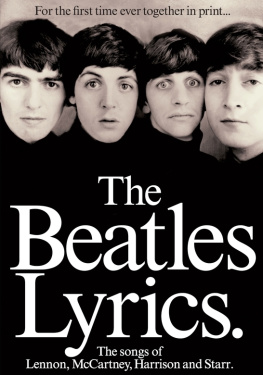
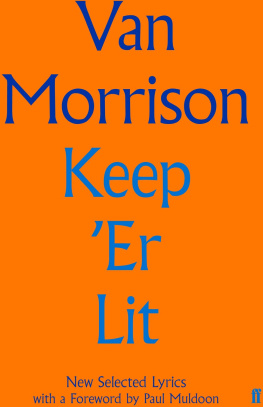
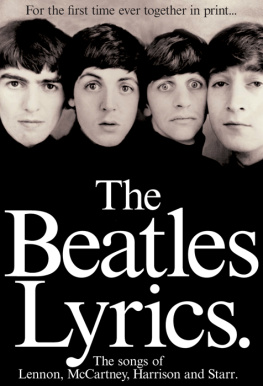
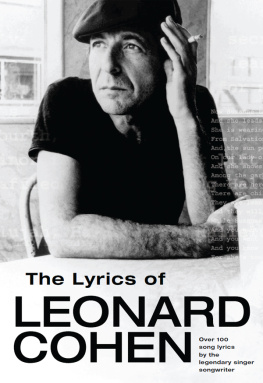
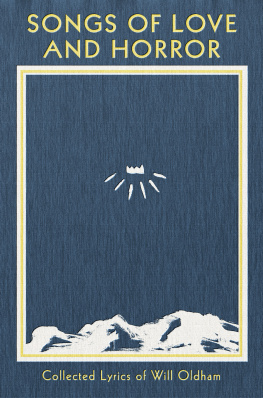
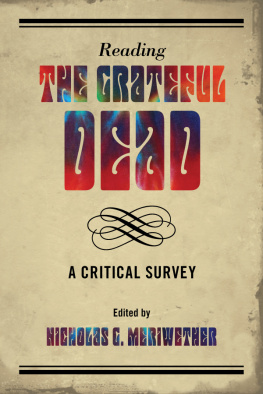
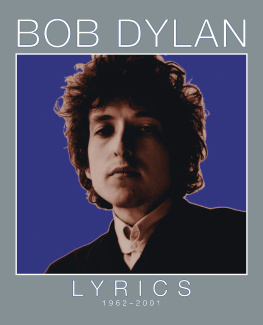
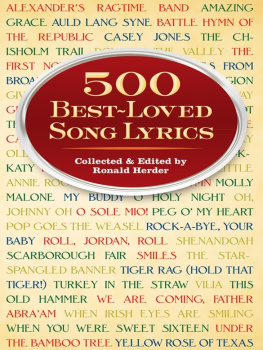


 FREE PRESS A Division of Simon & Schuster, Inc. 1230 Avenue of the Americas New York, NY 10020 www.SimonandSchuster.com Copyright 2005 by David Dodd Lyrics copyright by Ice Nine Publishing Company, Inc. Foreword copyright 2005 by Robert Hunter Afterword 2005 John Barlow Illustrations copyright 2005 by Jim Carpenter Turn On Your Love Light by Don D. Robey, Joseph W. Scott Universal Duchess Music / Floree. Used by permission.
FREE PRESS A Division of Simon & Schuster, Inc. 1230 Avenue of the Americas New York, NY 10020 www.SimonandSchuster.com Copyright 2005 by David Dodd Lyrics copyright by Ice Nine Publishing Company, Inc. Foreword copyright 2005 by Robert Hunter Afterword 2005 John Barlow Illustrations copyright 2005 by Jim Carpenter Turn On Your Love Light by Don D. Robey, Joseph W. Scott Universal Duchess Music / Floree. Used by permission.  hat, after all, is the point of a compendium of scatology and ontology viz the lyrics of the Grateful Dead? When fans hear a song they like, they internalize it, dance to it, sing along. Tape it, collect it, trade it.
hat, after all, is the point of a compendium of scatology and ontology viz the lyrics of the Grateful Dead? When fans hear a song they like, they internalize it, dance to it, sing along. Tape it, collect it, trade it.